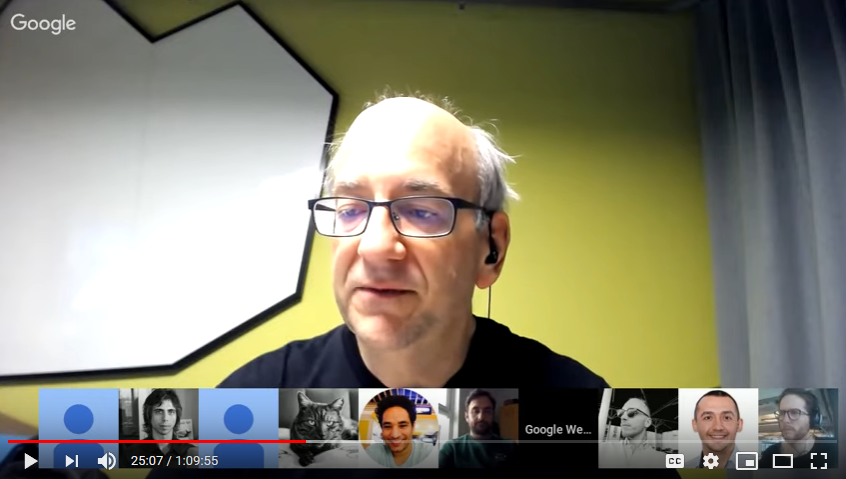How to Recover from a Google Broad Core Algorithm Update

A few weeks has passed since Google rolled out their latest broad core algorithm update. Articles have circulated that highlighted the ones that experienced massive wins and other sites that experienced the opposite. The prevailing factor that I see whenever Google rolls out broad core algorithm updates are questions such as “how do I fix it” or “what did I do wrong?” or “I didn’t do anything but my site traffic improved, why is that?”. There’s a variety of answers given to them, but they don’t seem to get the whole purpose of a broad core algorithm update. But before we delve into recovering if you were hit by the broad core update, what exactly is a broad core update?
What Is a Broad Core Update?
Simply put, it’s an algorithm rolled out by Google multiple times a year that doesn’t necessarily target specific issues. A broad core update is more of an update to their main search algorithm that deals with a more holistic view of a website and its expertise, authoritativeness, trustworthiness (E-A-T), and it’s quality.
Because of these many, varying factors, Google can’t really give us what needs to change in a website without them revealing the most important aspects of their algorithm. Think about it this way: There are 150 ranking factors that have varying importance in Google’s eyes. When they roll out broad core updates, 63 of those ranking factors’ importance changes and their order is rearranged. Of course, this is just an example and not a fact. But it’s a better way of imagining what really happens during a broad core update.
Here’s an example of how different broad core updates affected one of our clients:

This shows us how different broad core algorithm updates affect websites in a varying manner every time. The blue dots above the graph show when the broad core updates happened. So, we can infer that regular broad core algorithm updates target different aspects every time they are rolled out – not the same thing over and over again.
Google’s Take on Recovering From Broad Core Updates
Getting hit by the algorithm update is a normal occurrence especially if your website still has a lot of room for improvement. In a recent Google Webmaster Hangouts, a webmaster asked a question to Google’s own John Mueller regarding the drop in traffic for their news site. Here’s the full question:
“ We’re a news publisher website that’s primarily focusing on the business finance vertical. We probably have been impacted by the June Core Update as we’ve seen a traffic drop from the 1st week of June.
Agreed that the update specifies that there are no fixes, no major changes that need to be made to lower the impact. But for a publisher whose core area is content news, doesn’t it signal that it’s probably the content, the quality or the quantity, which triggered Google’s algorithm to lower down the quality signal of the content being put up on the website which could’ve lead to a drop of traffic?
We’re aware that many publisher sites have been impacted. In such a scenario, it would really help if Google could come out and share some advice to webmasters and websites. Not site specific, but category or vertical specific at least on how to take corrective measures and actions to mitigate the impact of core updates. It would go a long way in helping websites who are now clueless as to what impacted them.”

John Mueller went on to give the best answer he could possibly give, and here’s a summary of his answer (not verbatim):
“ There’s nothing to fix since there’s no specific thing that the algorithm targets. A variety of factors that relate to a website sometimes evolves, and that affects your traffic and rankings. There are no explicit changes you can do, but there is an old blog post (published 2011) on the Webmaster Central Blog that’s basically a guide on building high-quality sites and he highly recommends that webmasters read this post.”
Watch the Webmaster Hangout
There you have it. There’s nothing to fix, but there is a lot of room to improve on. The blog post that John Mueller recommended contains a list of questions (not necessarily actual ranking signals) that would help you understand what Google thinks about when it ranks your site:
- Would you trust the information presented in this article?
- Is this article written by an expert or enthusiast who knows the topic well, or is it more shallow in nature?
- Does the site have duplicate, overlapping, or redundant articles on the same or similar topics with slightly different keyword variations?
- Would you be comfortable giving your credit card information to this site?
- Does this article have spelling, stylistic, or factual errors?
- Are the topics driven by genuine interests of readers of the site, or does the site generate content by attempting to guess what might rank well in search engines?
Those are just some of the questions that are listed in the blog post. Aside from originality and usefulness, another thing that came to mind while I was reading the blog post is that even before the term E-A-T was coined, Google was already treating it as an important factor for rankings. Successfully proving that whoever your site’s author is an expert that proves that the body of content is of value and that the facts in the content (and your site) are trustworthy – all of this equates to E-A-T.
How to Recover from Google’s Broad Core Updates
-
Use the Guidelines Provided by Google to Look for Inadequacies in Your Website
- Use the guidelines (2011 blog post) to your site’s best interest. It already gives you a vision on the things that your site can do better on. Capitalize on that. It could take a lot of time and effort, but if you want to be successful in your SEO, then it’ll be worth it. Additionally, you can also read the updated Google’s Search Quality Raters Guidelines as well to deepen your understanding on Google’s standards for a high quality, useful website.
-
Improve your Site’s Expertise, Authority, and Trustworthiness (E-A-T)
- There’s a lot of things to do here, but the first would always be to improve your author E-A-T. It’s a simple thing to talk about but difficult to do. You have to prove that you’re an expert in the area you’re writing about, and in recent times, medical and pharmaceutical websites have been the target of algorithm updates since not all of the content they have come from reputable or expert authors. Here’s a simple tip: If you start configuring your site to the guidelines highlighted in the webmaster central blog post, your E-A-T will improve as well.
-
Ask for Help
- As the owner of a website, it is hard for you to see the faults contained in your website since you only have your own perspective to work on. But if you ask help from a community that shares the same interests or knows the same things that you do, then you can ask them to give their thoughts about your site, and you’ll be able to see the faults that you were never able to see before. The SEO community is a particularly large one and we have our fair share of intelligent and helpful people that are willing to give you their two cents. Don’t be afraid to ask for help from the community or anyone you know since it’ll help you grow as well.
-
Think Holistically
- As I’ve mentioned, it’s a mistake to focus on a specific thing or factor when it comes to Google’s broad core updates. Sometimes, not focusing on a specific thing allows you to discover the reason why your site was impacted by the broad core update. Additionally, not focusing too much on the nitty gritty keeps you open-minded and allows you to consider many possibilities that help you diagnose your site’s traffic or ranking drop.
That’s it. It sounds simple but it’ll be a challenge for us to fully complete these tasks. But the end result will surely be rewarding, to say the least. Do you know any other things that I missed out on? Let me know in the comments below!